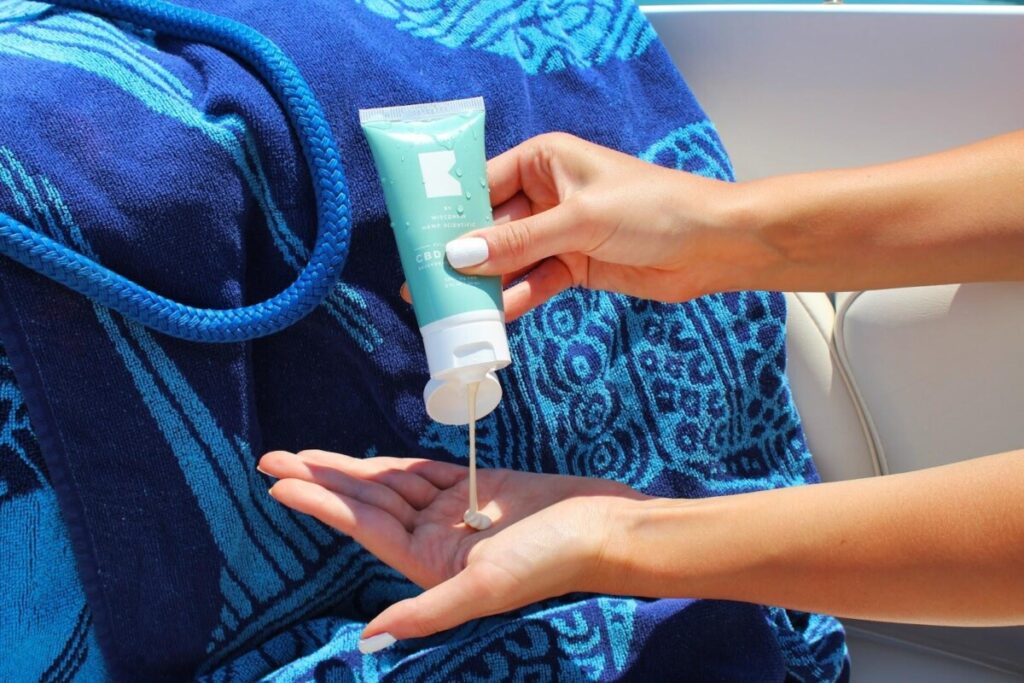We all love sunbathing and taking part in outdoor activities. After all, the sun is a natural source of Vitamin D and helps us to feel energetic and productive. A good relaxing session can help to improve our physical and mental well-being.
But, when the exposure becomes too much it can also have negative effects if we are not adequately protected. Overexposure to UV radiation in the sun’s rays can cause sunburns and skin cancer, so it’s essential to be aware of how much and what kind of sun protection you need and make sure you take steps to protect yourself.
Why Do We Need Skin Protection?
Having healthy skin is not just for beauty. Skin health is essential for people of all ages since it contributes to overall muscle and bone health.
It has been proven that most skin cancers are a result of exposure to UV rays in sunlight. Basal cell and squamous cell cancers, which are the two most common types of skin cancer, are mainly caused by UV radiation from the sun. They are caused on the body parts that are frequently exposed to sunlight, such as the face, neck, and arms. These areas of the body must be adequately protected from the sun to avoid adverse effects.
Finding the Right Sun Protection Products
As the name implies, sun protection products, such as sunscreen and sun protective clothing, are developed to protect the body from UV radiation. These products are designed to provide a physical barrier between the skin and the sun’s rays, thus reducing the risk of developing skin cancer.
Dedicated sun protective clothing vendor UV Skinz has a wide variety of clothes and accessories to guard against overexposure to the sun. These pieces are made from UPF 50+ fabric that is capable of blocking nearly 98% of the harmful UVA and UVB radiation!
You can choose your sun protective clothing based on your need and occasion. There are UV swimwear, SPF shirts, hats for sun protection, and other UV-blocking clothing. This can be effective in reducing the risk of skin cancer and also helps to prevent premature aging caused by sun damage.
Let’s take a look at some affordable sun protection products in detail.
Sunglasses
Sunglasses block out the glare of the sun and protect your eyes, reducing the risk of cataracts and other eye diseases. Sunglasses should have lenses with 100% UV protection to ensure the best possible protection.
Sunscreen lotions
Sunscreen is one of the most common forms of sun protection. It works by absorbing or reflecting UV radiation before it reaches your skin. Sunscreen should be applied 15-30 minutes before going out in the sun and be reapplied every two hours. Sunscreen with SPF 30 or higher is recommended for the best protection.
Understanding SPF
SPF stands for “sun protection factor” and is a measure of the amount of UV radiation that a sunscreen can block out. A sunscreen with a higher SPF will block out more of the sun’s rays, providing better protection against skin cancer. Sunscreens that claim to be “water-resistant” are also better at protecting your skin from the sun because they are less likely to wash off when you sweat or swim.

Sun Protective Clothing
Another common health issue that can affect the skin is sunburn. Sunburns, even mild ones, can increase the risk of developing skin cancer.
But it is relatively easy to avoid sunburns and overexposure to the sun’s rays. In fact, preventing sunburns is much easier than treating them. Exposure to UV radiation can be effectively controlled with sun protection products, such as UPF clothing.
Sun protective clothing is another important form of sun protection that can help reduce your risk of skin cancer. Sun protective clothing is made from special fabrics that have an ultraviolet protection factor (UPF), similar to SPF for sunscreens, of about 30. This means they let only 1 out of ~30 units of UV light pass through. Moreover, the clothes are designed to cover most of the sun-exposed body parts, such as the legs, neck, and arms.
Do Sun Protection Products Protect From and Prevent Cancer?
Yes, sun protection products can protect from skin cancer. That being said, they can’t completely prevent skin cancer. They can reduce the risk of developing skin cancer to a large extent, based on various factors, but no product can guarantee 100% protection from skin cancer.
For instance, using an SPF 15 cream daily can help reduce the chances of developing squamous cell carcinoma by as much as forty percent. Similarly, it can also reduce the risk of melanoma by about fifty percent!
Therefore, it is important to take all the necessary precautions, such as wearing sun protective fabrics, applying sunscreen lotion, and avoiding prolonged exposure to the sun regularly. This can drastically reduce the chances of developing various types of skin cancer.
Conclusion
Sun exposure can have serious consequences for our skin health, so it is important to take all the necessary steps to protect ourselves. Sun protective products, such as sunglasses, sunscreen lotions, and sun protective fabrics, can all help in reducing the risk of skin cancer.
Moreover, if you notice any unusual changes to your skin, such as a sudden appearance of moles or growths, it is advised to consult a doctor immediately. Early detection and treatment of skin cancer can save your life!
FAQs
What is the difference between SPF and UPF?
SPF stands for “sun protection factor” and measures the amount of UV radiation a sunscreen can block out. UPF stands for “ultraviolet protection factor” and measures the amount of UV radiation a fabric can block out.
Can sun protection products protect and prevent cancer?
Yes, sun protection products can protect from skin cancer. However, they cannot completely prevent skin cancer as there is no guarantee of 100% protection from skin cancer.
What are the warning signs of skin cancer?
Warning signs of skin cancer include irregularly shaped moles, changes in the size, shape, or color of moles, and skin growth. If you notice any of these changes on your skin, consult a doctor immediately.
